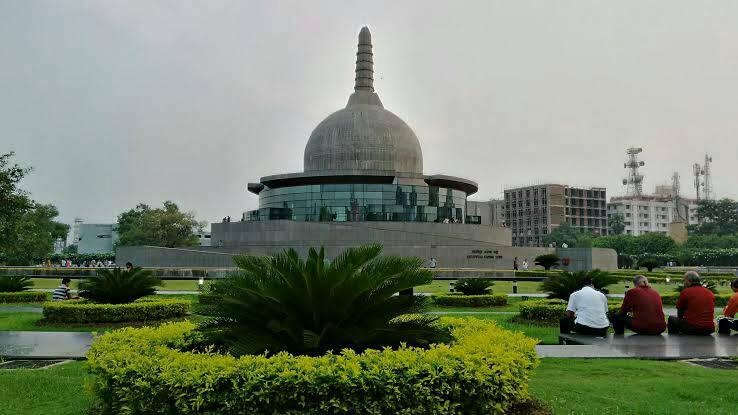Bihar’s Financial Transformation: Dominating the Microfinance Landscape
Bihar, one of India's most populous and historically impoverished states, has witnessed a remarkable financial transformation in recent years. Bihar's Financial Transformation: Dominating the Microfinance This transformation is largely driven by the burgeoning microfinance sector, which has significantly contributed to the state's economic growth and the upliftment of its underprivileged population. This article delves into Bihar's journey towards financial inclusion, the pivotal role of microfinance, the challenges faced, and the prospects ahead.
The Economic Landscape of Bihar
Bihar has long been associated with high levels of poverty, low literacy rates, and inadequate infrastructure. However, the state's economic landscape has been changing, thanks to various government initiatives and the rise of microfinance institutions (MFIs). These institutions have provided a lifeline to millions of individuals and small businesses, offering them access to credit and financial services that were previously unavailable.
The Rise of Microfinance in Bihar
Microfinance refers to financial services provided to low-income individuals or those who do not have access to typical banking services. These services include microcredit, savings, insurance, and remittances. In Bihar, the microfinance sector has grown exponentially over the past decade, with numerous MFIs establishing their presence in the state.
Key Players in Bihar’s Microfinance Sector
Several MFIs have played a crucial role in Bihar's financial transformation. Some of the prominent ones include:
- Bandhan Bank: Initially an MFI, Bandhan Bank has expanded its operations to become a full-fledged bank. It has a significant presence in Bihar, offering a range of financial services to the underserved population.
- SKS Microfinance (Bharat Financial Inclusion Ltd.): One of the largest MFIs in India, SKS Microfinance has a strong foothold in Bihar, providing microloans to women entrepreneurs and small businesses.
- Grameen Bank: Modeled after the famous Grameen Bank in Bangladesh, this MFI has been instrumental in promoting financial inclusion in Bihar by offering small loans to rural women.
- Ujjivan Financial Services: Ujjivan has been actively involved in providing financial services to the urban poor in Bihar, focusing on microloans and insurance products.
Impact on the Local Economy
The impact of microfinance on Bihar's local economy has been profound. By providing access to credit, MFIs have enabled individuals to start and expand small businesses, leading to increased household incomes and improved living standards. Some of the key areas where microfinance has made a significant difference include:
Agriculture
Bihar is predominantly an agrarian state, with a large portion of its population dependent on farming for their livelihood. However, the lack of access to formal credit has often hindered agricultural productivity. Microfinance has addressed this issue by providing small loans to farmers, enabling them to purchase seeds, fertilizers, and equipment. This has led to improved crop yields and increased incomes for farming households.
Women Empowerment
Microfinance has played a crucial role in empowering women in Bihar. By offering microloans to women entrepreneurs, MFIs have enabled them to start and grow their businesses. This financial independence has not only improved their economic status but also enhanced their social standing within their communities. Women's self-help groups (SHGs) have been particularly successful in leveraging microfinance to achieve collective economic goals.
Small and Micro Enterprises
The growth of small and micro enterprises (SMEs) in Bihar has been significantly boosted by the availability of microfinance. These enterprises, which often struggle to secure loans from traditional banks, have found a reliable source of credit in MFIs. As a result, many small businesses have flourished, contributing to job creation and economic diversification in the state.
Government Initiatives and Support(Bihar’s Financial Transformation: Dominating the Microfinance)
The Bihar government has been proactive in supporting the microfinance sector. Various schemes and initiatives have been launched to promote financial inclusion and support the growth of MFIs. Some of these include:
Jeevika Program
The Bihar Rural Livelihoods Project, also known as Jeevika, is a flagship initiative aimed at reducing poverty by promoting sustainable livelihoods. The program has partnered with various MFIs to provide credit and other financial services to rural households. Jeevika has been instrumental in forming SHGs and facilitating their access to microfinance.
Financial Literacy Programs
The state government, in collaboration with MFIs and non-governmental organizations (NGOs), has been conducting financial literacy programs to educate the population about the benefits of microfinance and responsible borrowing. These programs have helped in increasing the uptake of microfinance services and ensuring their effective utilization.
Digital Financial Inclusion
To enhance the reach and efficiency of microfinance services, the Bihar government has been promoting digital financial inclusion. Initiatives like the Pradhan Mantri Jan Dhan Yojana (PMJDY) have led to the opening of millions of bank accounts, facilitating easier access to microfinance products. Additionally, the use of mobile banking and digital payment platforms has made financial transactions more convenient and secure.
Challenges and the Way Forward
Despite the significant progress, the microfinance sector in Bihar faces several challenges that need to be addressed to ensure sustainable growth and impact.
High Interest Rates
One of the major criticisms of microfinance is the high-interest rates charged by MFIs. These rates, often higher than those of traditional banks, can be burdensome for borrowers. There is a need for regulatory measures to ensure that interest rates are fair and affordable for the beneficiaries.
Over-Indebtedness
The easy availability of microloans has sometimes led to over-indebtedness among borrowers, who take multiple loans from different MFIs. This can result in a debt trap, undermining the very purpose of financial inclusion. It is essential to have robust credit assessment and monitoring mechanisms in place to prevent such scenarios.
Operational Challenges
MFIs in Bihar often face operational challenges, including inadequate infrastructure, limited access to remote areas, and difficulties in loan recovery. Addressing these challenges requires concerted efforts from the government, MFIs, and other stakeholders to build a supportive ecosystem for microfinance.
Enhancing Financial Literacy
While significant strides have been made in promoting financial literacy, there is still a long way to go. Continuous efforts are needed to educate the population about the benefits and risks associated with microfinance, ensuring that they make informed financial decisions.
Conclusion
Bihar's financial transformation, driven by the microfinance sector, is a testament to the potential of financial inclusion in uplifting the lives of the underserved. The impact of microfinance on agriculture, women empowerment, and small enterprises has been profound, contributing to the state's economic growth and social development. However, to sustain this progress and address the challenges, there is a need for collaborative efforts from the government, MFIs, and other stakeholders. With the right policies and support, Bihar can continue to dominate the microfinance landscape and serve as a model for other states to follow













